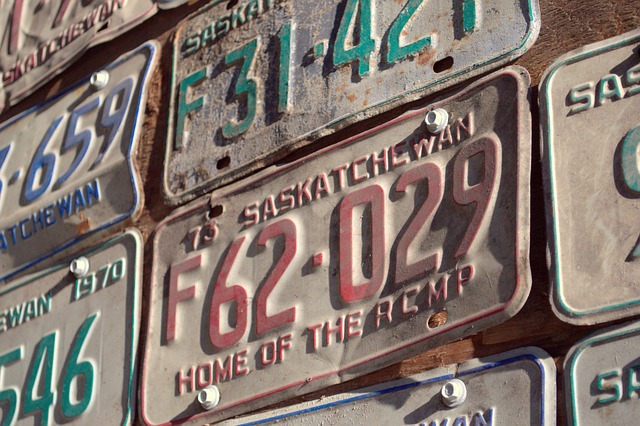Motorcycle registration fees vary by state in the U.S., influenced by factors like displacement, engine size, and type, with states individually setting these fees through their own regulations. Larger engine capacity motorcycles typically face higher fees, reflecting a state's taxation strategy on vehicle class and usage. Some states offer reduced fees for environmentally friendly motorcycles as an incentive. Motorcyclists are advised to regularly consult their state's DMV for the most up-to-date fee information due to changes like those recently implemented in Nevada, ensuring they can budget for registration and renewal costs without surprises. The fees are generally lower than those for cars, considering motorcycles' size, weight, and risk profile. However, substantial differences exist across states, with some adjusting rates frequently. Riders should be aware that their registration fees can be influenced by the bike's engine size, displacement, and endorsement requirements, along with potential extra charges including sales tax, title fees, and surcharges for highway safety or rider education programs. To avoid surprises, it is recommended to check the specific DMV fee schedule before registering or renewing. This adjustment underscores the state's commitment to equitable vehicle taxation policies, emphasizing the necessity for riders to stay informed of changes to maintain compliance and manage their transportation budget effectively.
Owning a motorcycle offers a unique blend of freedom, efficiency, and enjoyment on the road. However, this two-wheeled adventure comes with its financial considerations, chief among them being the registration fees and ongoing costs associated with maintaining a vehicle’s legality on public roads. While these fees are often lower than those for cars, understanding the nuances of each state’s DMV fee schedule is crucial to avoid unexpected expenses. As an example, recent changes in Nevada’s annual DMV fees for motorcyclists highlight the importance of staying informed about how these costs stack up against other types of vehicles. This article delves into the specifics, comparing motorcycle registration fees across states, decoding DMV fee schedules for bikes, and examining Nevada’s latest adjustments. We will also contrast these fees with those for cars and trucks, guide riders through the renewal process, and clarify additional taxes and fees associated with motorcycle ownership. Join us as we navigate this complex landscape to ensure your two-wheeled journey remains both enjoyable and cost-effective.
- Motorcycle Registration Fees: A State-by-State Comparison
- Navigating DMV Fee Schedules for Motorcycles
- Nevada's Annual Fee Adjustments for Bikers Explained
- Cost Contrast: Motorcycles vs. Other Vehicles
- Motorcycle Registration Renewal: What Riders Need to Know
- Understanding Motorcycle Taxes and Additional Fees
Motorcycle Registration Fees: A State-by-State Comparison

Motorcycle registration fees vary significantly from state to state, with factors such as displacement, engine size, and type influencing the cost. Riders should be aware that no single fee schedule applies across the nation; instead, each state has its own regulations governing motorcycle registration. In some states like Nevada, legislative changes have led to adjustments in annual DMV fees for motorcyclists, which underscores the importance of riders being knowledgeable about their jurisdiction’s specific requirements. For instance, a motorcycle with a larger engine capacity might incur a higher fee than one with a smaller engine, reflecting the state’s approach to taxation based on vehicle class and usage. Comparatively, states may offer lower fees for motorcycles as an incentive to choose this mode of transportation, recognizing the fuel efficiency and space-saving benefits they provide. To navigate this complex landscape, riders should consult their state’s Department of Motor Vehicles (DMV) or equivalent agency for the most current fee information. This due diligence will help ensure that they are prepared for the costs associated with owning and operating a motorcycle, avoiding any unexpected financial burdens when it comes time to register or renew their vehicle’s registration. Keeping abreast of these changes is essential for motorcyclists, as fees can influence both short-term budgeting and long-term planning for continued use and enjoyment of their motorcycles.
Navigating DMV Fee Schedules for Motorcycles

Navigating the Department of Motor Vehicles (DMV) fee schedules for motorcycle registration can be a straightforward process if one is well-informed. Typically, motorcycles are subject to lower fees compared to their automotive counterparts, reflecting differences in size, weight, and perceived risk on the road. These reduced fees are designed to account for the generally lower cost of ownership and operation for motorcycles. However, it’s important for riders to recognize that these fees can vary significantly from state to state. For instance, states like Nevada have recently adjusted their annual DMV fees for motorcyclists, which underscores the need for riders to be up-to-date with local regulations. Factors such as engine size, displacement, and sometimes even the type of endorsement required can influence the fee amount. Riders should expect to pay a base registration fee, with potential additional charges that may include sales tax, title fees, and other mandatory surcharges related to highway safety or rider education programs. To avoid any unexpected costs, it’s advisable for motorcyclists to consult their state’s specific DMV fee schedule before proceeding with registration or renewal of their vehicle’s registration. Staying informed about these fees ensures compliance and helps riders budget effectively for their motorcycle-related expenses.
Nevada's Annual Fee Adjustments for Bikers Explained

Nevada has recently adjusted its annual DMV fees for motorcycle registrations, marking a change from the previous flat fee structure to a tiered system based on engine displacement. This update means that riders with larger-displacement bikes will now face higher annual fees compared to those with smaller-displacement motorcycles. The rationale behind this adjustment is to align the fees with the road usage and the wear and tear that different classes of motorcycles impose on state infrastructure. As a result, the new fee schedule aims to create a more equitable system where the costs are proportional to the impact each motorcycle has on the roads. Riders are encouraged to check the updated Nevada DMV fee schedule to accurately calculate their annual registration fees and avoid any unexpected charges upon renewal. This change not only reflects the state’s effort to fine-tune its vehicle taxation policy but also underscores the importance for riders to stay informed about such updates, ensuring they remain compliant with state regulations and can plan their transportation budget accordingly.
Cost Contrast: Motorcycles vs. Other Vehicles

When contrasting motorcycle registration fees with those of other vehicles, it’s evident that motorcycles typically incur lower costs. This fee reduction is often due to their smaller size and perceived lower risk profile compared to larger vehicles on the road. However, the exact fees can vary significantly from state to state within the United States. For instance, annual DMV fees for motorcyclists might be a fraction of what car owners pay in certain jurisdictions, while in others, the difference may not be as pronounced. It’s important for riders to familiarize themselves with their state’s specific fee schedule, as recent adjustments by states like Nevada exemplify the dynamic nature of these charges. These changes can affect how much one pays for registration and renewal, underscoring the need for ongoing vigilance. When comparing motorcycles to other vehicles, factors such as weight, environmental impact, and usage statistics influence the cost structure. For example, electric vehicles and hybrid cars may have different fee calculations based on their environmental benefits or drawbacks. Motorcyclists should also be aware of additional fees that can apply, such as those for license plates, safety inspections, and disability placards if applicable. Understanding these costs and how they compare to other vehicle categories is crucial for motorcycle owners to manage their expenses effectively and plan for their annual registration renewal without any unwelcome financial surprises.
Motorcycle Registration Renewal: What Riders Need to Know

When it comes time to renew your motorcycle registration, it’s important for riders to be aware of the specific processes and fees associated with their vehicle type. Unlike car registrations, which can come with a range of fees based on factors like vehicle size and weight, motorcycle registration renewals typically involve a lower fee structure. This distinction often results from the perception that motorcycles cause less wear and tear on roadways compared to larger vehicles. However, these fees can vary significantly by state; for instance, Nevada has recently modified its annual DMV fees for motorcyclists, which underscores the need for riders to stay informed about their local regulations.
To ensure a smooth renewal process, riders should familiarize themselves with their state’s Department of Motor Vehicles (DMV) fee schedule and any changes that may have been implemented. This includes understanding whether the renewal can be completed online, by mail, or in person, as well as the documentation required for proof of insurance, vehicle inspection certificates, and any necessary identification. Riders should also be mindful of any additional fees or requirements, such as those for emissions testing, which may apply to motorcycles in certain states. Keeping abreast of these details will help prevent unexpected costs and ensure compliance with state laws, allowing riders to focus on the joy of the ride rather than administrative concerns.
Understanding Motorcycle Taxes and Additional Fees

When navigating motorcycle ownership, understanding the taxes and additional fees associated with registration is key to managing costs effectively. Unlike cars and trucks, motorcycles often incur lower registration fees, reflecting their different tax classification in many jurisdictions. However, this doesn’t mean that riders can predict their total cost without thorough research. Each state has its own fee structure for vehicle registration, which includes various taxes and surcharges. For instance, some states may impose an ad valorem tax based on the motorcycle’s value, while others might charge a flat fee regardless of the bike’s worth. Additionally, there could be extra fees, such as those for license plates or safety inspections, which can vary significantly from one state to another. Riders should also be aware that some states have recently adjusted their annual DMV fees for motorcyclists, with Nevada being an example of a state that has tweaked its fees. These changes highlight the importance of riders staying informed about their state’s fee schedule to avoid any unexpected costs upon registration renewal. It’s advisable for motorcycle owners to check their state’s department of motor vehicles (DMV) website or contact them directly for the most accurate and up-to-date fee information. This proactive approach ensures that riders can plan their expenses and enjoy their motorcycling experience without any financial surprises.
Navigating the realm of motorcycle registration and associated fees can be a nuanced task, with variations from state to state. As outlined in this article, understanding your local DMV’s fee schedule is key to avoiding unexpected expenses. Notably, states like Nevada have recently adjusted their annual fees for motorcyclists, highlighting the importance of staying informed. When contrasted with other vehicles, motorcycles often present a more economical registration option. However, this comes with the responsibility to be aware of additional taxes and fees that may apply. Riders should take note of the specific details provided in sections such as “Motorcycle Registration Fees: A State-by-State Comparison,” “Navigating DMV Fee Schedules for Motorcycles,” and “Nevada’s Annual Fee Adjustments for Bikers Explained.” Additionally, the article has shed light on what riders can expect during registration renewals, as discussed in “Motorcycle Registration Renewal: What Riders Need to Know” and “Understanding Motorcycle Taxes and Additional Fees.” Armed with this knowledge, motorcyclists can navigate the system with confidence, ensuring compliance and cost-effectiveness.



